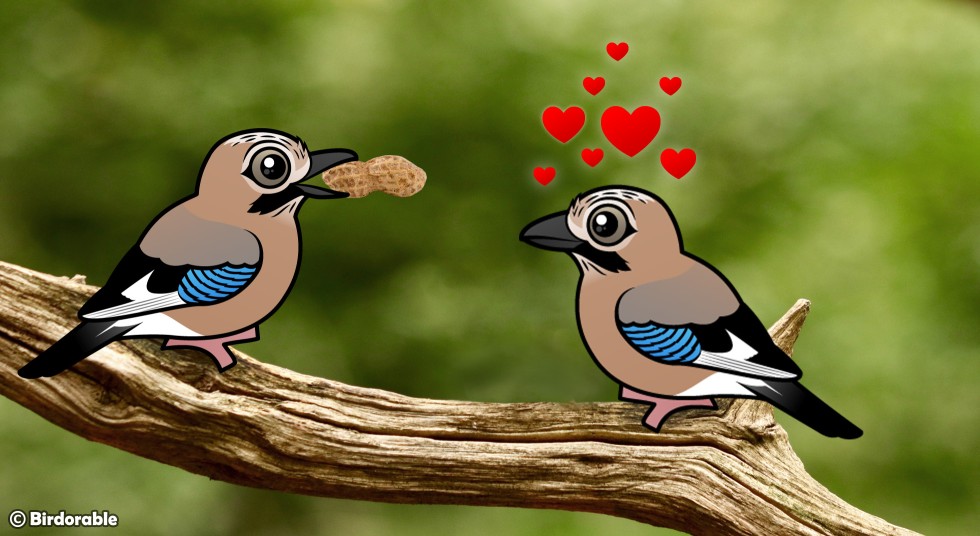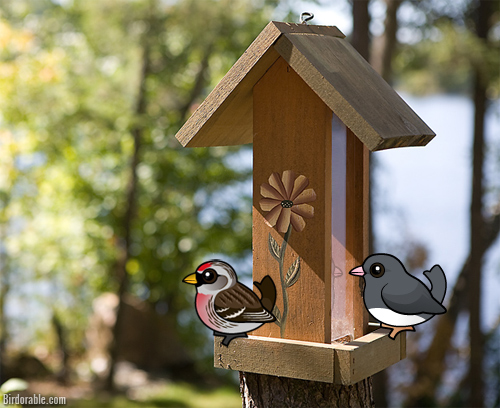
A recent study involving Eurasian Jays found that the birds, related to Blue Jays and crows, demonstrate an aspect of intelligence previously thought only to exist in humans. Male Eurasian Jays present their mates with gifts as part of their natural pair-bonding behavior. In the study, male jays were given the option to present their mates with a gift of a mealworm larvae or a moth larvae.
The male would observe the female bird eating either moth larvae or mealworm larvae, and depending on which the female had been eating, the male would offer her the other. The idea is that a "jay that’s gorged on moths will generally prefer to eat mealworms afterwards, and vice versa, just as a [human] satiated by chocolate will next take a slice of cake." This type of awareness of the feelings of others is called "theory of mind" and it was once believed that only humans had this kind of knowledge. You can read more about the study and see a short video of the experiment here: Gift-Giving Birds May Think Much Like People.




















